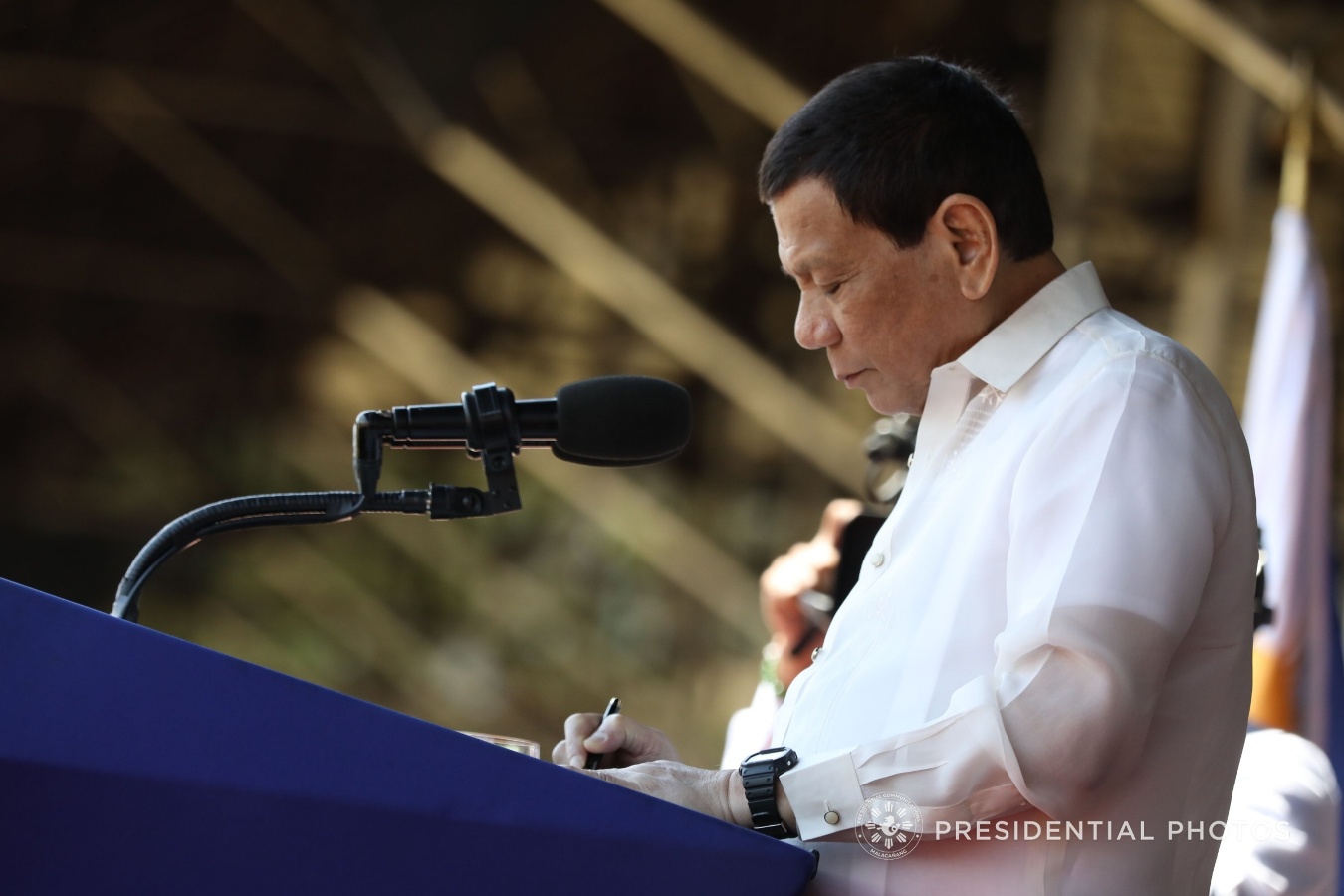
FILE: President Rodrigo Roa Duterte signs the Pardon of Punishment to all outstanding punishments of the underclassmen of the Cadet Corps Armed Forces of the Philippines during the Commencement Exercises of the Philippine Military Academy (PMA)’Alab-Tala’ Class of 2018 at Fort General Gregorio H. del Pilar in Baguio City on March 18, 2018. KARL NORMAN ALONZO/PRESIDENTIAL PHOTO
MANILA – President Rodrigo R. Duterte has signed Executive Order No.
65 promulgating the 11th Regular Foreign Investment Negative List (RFINL).
Duterte approved the amended list of investment areas open to foreign investors on Oct. 29 and was released to the media on Wednesday.
The National Economic and Development Authority (NEDA) submitted the list to the Palace last July for the President’s approval.
The NEDA listed the following investment areas/activities that will now allow up to 100 percent foreign participation:
(1) Internet businesses, excluded from mass media;
(2) Teaching at higher education levels provided the subject being taught is not a professional subject (i.e., included in a government board or bar examination);
(3) Training centers that are engaged in short-term high-level skills development that do not form part of the formal education system;
(4) Adjustment companies, lending companies, financing companies and investment houses; and
(5) Wellness centers excluded in Item 4 of List B.
Section 1 of EO 65 provides that only the investment areas and/or activities on the 11th RFINL “shall be reserved for Philippine nationals, subject to the exceptions and conditions indicated therein.”
Amendments to List A may be made at any time to reflect changes instituted in specific laws while amendments to List B shall not be made more often than once every two years, stated in Section 2 of the Order.
According to NEDA, the EO allows up to 40-percent foreign participation in contracts for the construction and repair of locally-funded public works, subject to applicable regulatory frameworks, and private radio communication network.
The 10th RFINL allowed only up to 25-percent and 20-percent foreign participation, respectively, in these areas.
Meanwhile, Presidential Spokesperson Salvador Panelo confirmed the restriction involving contracts for the construction and repair of locally-funded public works “was liberalized from 25 percent to 40 percent foreign equity.”
“This, however, is subject to applicable regulatory frameworks and does not cover infrastructure or development projects under Republic Act No. 7718, as well as projects which are foreign-funded or assisted and required to undergo international competitive bidding,” Panelo said in a statement.
He said the latest RFINL is meant to liberalize as many sectors as possible to keep up with domestic and global demands and was designed to be consistent with the policy of easing restrictions on foreign participation in certain industries or activities.
“The list is a product of extensive discussions and we made certain that the same is in accordance with our Constitution,” Panelo said.
“While the cited area of liberalization is not exclusively intended for the ‘Build, Build, Build’ program of the government, we accorded due consideration to the reality that construction is one of the most important sectors today in view of the demand arising from the said program and the support given by the Filipinos to it,” he added.





















